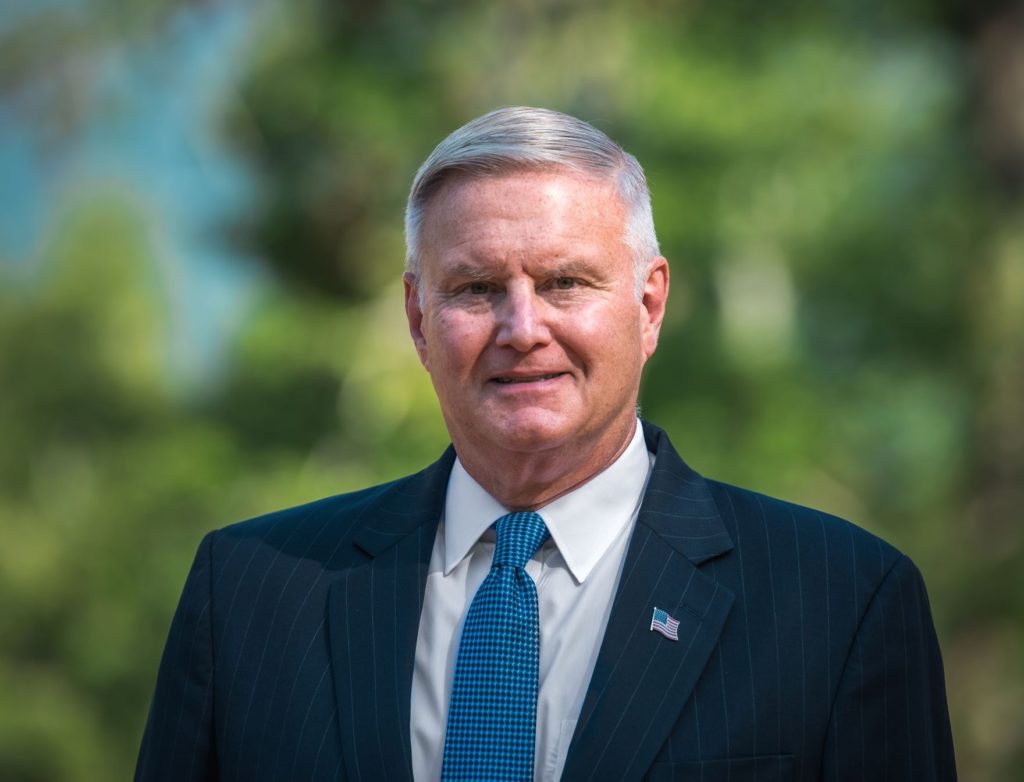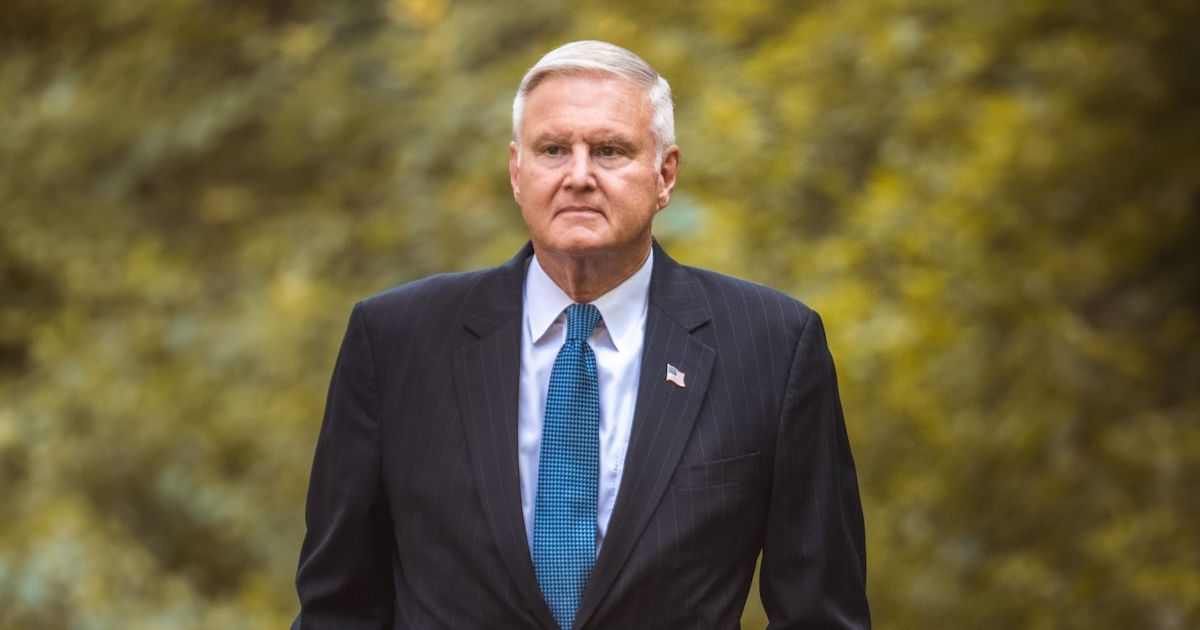Key actions and positions posted on the intersection of disability and education, jobs, immigration, climate crisis, criminal justice and more

Raleigh, NC, Sept. 10 – Democratic congressional candidate, retired U.S. Air Force colonel, attorney, and educator Moe Davis has responded to a detailed candidate questionnaire on disability issues. The questionnaire is from RespectAbility, a nonpartisan nonprofit disability organization that does not endorse candidates. The questionnaire is purely for educational purposes. RespectAbility has reached out to key Senate and gubernatorial campaigns on both sides of the aisle and will be posting all responses on The RespectAbility Report. The full text of RespectAbility’s questions and Davis’ responses follows:
1. Learning during the COVID-19 pandemic has led to more issues and concerns for all students and their families, but this is especially true for students with disabilities. Additionally, the gap in graduation and drop-out rates between students with and without disabilities continues to undermine their futures. For example, in the class of 2018, only 66 percent of Black students with disabilities, 71 percent of Hispanic students with disabilities, 77 percent of white students with disabilities, and 79 percent of AsianAmerican students with disabilities completed high school. Furthermore, just seven percent of students born with a disability graduate from college.What is your plan for ensuring that all students with disabilities receive a quality and appropriate education to acquire the critical and marketable skills necessary to compete in a job-driven economy?
Public education is the cornerstone of our Democracy. I support the goals of the U.S. Dept of Education, including the Office of Special Education and Rehabilitative Services, Office for Civil Rights, Office of Elementary and Secondary Education, and Office of Postsecondary Education. These important offices have all played critical roles in ensuring access, equity, and opportunity to students with disabilities. They need to be fully funded with adjustments for inflation. I will work to include funding for specific technologies necessary to support students with disabilities and will listen to advocates who work tirelessly on their behalf. IDEA and ESSA are essential and should never be considered for cuts. All students should be strongly encouraged to take the same general tests with necessary accommodations, with only students with the most significant disabilities taking alternate tests based on alternate assessments. All students with disabilities should get an opportunity to graduate with a regular diploma.
2. In the economic expansion prior to the COVID-19 pandemic, the national employment rate for working-age people with disabilities in America was 37.6 percent compared to 77.8 percent of people without disabilities. Further, there continues to be significant disparities in employment outcomes within the disability community, which varies from state to state. There are significant racial disparities in disability employment outcomes. 38.9 percent of working-age white people with disabilities have jobs compared to only 29.7 percent of working-age Black people with disabilities had jobs, 39.4 percent of working-age Hispanics with disabilities and 43.2 percent of working-age Asian-Americans with disabilities. The pandemic has ravaged the disability community and more than 1 million workers with disabilities have lost their jobs. If elected, what will you do to ensure that the government is removing barriers and promoting high quality, inclusive services built on evidence-based policies, practices and procedures leading to competitive, meaningful careers, which includes promoting entrepreneurial opportunities?
I was a hiring authority numerous times in the military and in the federal government. I have an actual record of having people with disabilities working for me. As a judge with the U.S. Department of Labor, I have a record of ensuring individuals with disabilities were treated fairly and adequately compensated.
I will focus on access to information and communication technologies needed to reduce barriers, including technologies for cognitively impaired citizens. It is especially important for students and adults with disabilities to have access to broadband and the devices the rest of Americans have taken for granted when applying for jobs and conducting their lives in a myriad of ways. Cognitively disabled citizens’ access to information has been largely overlooked and has hindered their full and active inclusion in the workforce. Communication technologies are especially important for those with communication problems and can help to level the playing field for those workers and students.
Covid-19 has made apparent that communication technologies are absolutely essential for those with cognitive disabilities to communicate with their physicians and loved ones if they live in group homes or are otherwise separated from family and support systems.
3. The disability community fundamentally believes in the need to ensure “Nothing about us, without us” – real inclusion and places at decision making tables – because we know solutions that work and want to be a part of making our communities stronger. What specific measures have you taken to make your campaign accessible for, and inclusive of, people with disabilities, as every issue impacts our lives?
Unfortunately because of Covid-19, our campaign is mostly virtual and while we have hundreds of volunteers throughout our 17-county rural district, I have no way of knowing how many may be disabled. However, a disability is not a barrier to working for our campaign. My core campaign staff of four people does not include a person with a disability. I am a partially disabled veteran, and my father was 100 percent disabled, and as such I am more sensitive to those with disabilities. I do know what it is like to have disabled parent who cannot do some of the things other parents do.
4. RespectAbility published Disability in Philanthropy & Nonprofits, based on our study on the levels of disability inclusion in the social sector across the country. This largescale study found significant data showing that nationwide, organizations overall want to be inclusive, but are unintentionally excluding the one-in-five people with disabilities. What will you do to promote policies and practices designed to support full community engagement, access and inclusion of people with disabilities?
I will support all current and future policies that make life less stressful for people with disabilities. I’ve actually been a beneficiary of the Americans with Disabilities Act. When I worked for the Department of Labor as an administrative law judge, I was provided a reasonable accommodation that included a sit-stand desk and an ergonomically fitted chair.
The current administration is requiring folks on SSDI get more frequent reviews. A tactic that will cost about the same as it will save but will place a very heavy and unnecessary burden on the disabled. It will also cause many to lose benefits. We are the wealthiest country in the world and every couple of years the disabled have to worry about losing the meager benefits they receive. Right now, the president has cut the payroll tax which is the tax that pays for SSI, SSDI and Medicare. I will fight hard against legislation that puts the disabled in the crosshairs of politics. I do believe disabled persons need to be at the table of all decisions made concerning legislation that would impact their lives. We need to challenge the stigma associated with disabilities. Government contracts can promote those with disabilities, which helps to challenge stereotypes.
5. Elected officials have multiple opportunities to demonstrate a strong commitment to diversity and inclusion, full community participation and celebrating the contributions and accomplishments of people with disabilities through press releases, speeches, celebratory events including National Disability Employment Awareness Month. There are significant stigmas that create attitudinal barriers that limit options and perpetuates low expectations for people with disabilities. What measures will you take to combat these stigmas and promote opportunities for people with disabilities?
My father was a 100 percent disabled veteran of World War II. Despite his physical limitations, he served as commander of the American Legion Post and was actively engaged in state and local politics.
I will encourage folks with disabilities to run for public office. We need people with disabilities in every aspect of every industry across America. We need to fund programs in community and four-year colleges that support students with disabilities in public policy careers and all careers. We need to fully fund occupational therapy programs in every district regardless of that district’s revenue. We must expand Medicaid in every state to remove concerns employers may have about the cost of medical benefits to potential applicants with disabilities.
6. In our nation’s public schools, there are 6.3 million students with disabilities. The changing demographics of America are reflected in these students, with 11.4 percent of students with disabilities nationwide, almost 720,000, also identified as English-language learners. Their accommodation needs are compounded by the fact that many come from households that do not speak English at home, adding an extra challenge for parental interaction. It can also be harder to diagnose disabilities in children when they are English language learners. Additionally, immigration issues and fears over the public charge rule impact students with disabilities, their families and the wider workforce. What policies would you advance to enable students and their families who are English language learners with disabilities to succeed in school and employment?
ESL services in schools should be expanded to students attending public online school. Communication technology can be very helpful to ESL students with cognitive impairments and to those with communication challenges. Devices that enhance education and the quality of life and work are essential and not luxury. The public charge rule should absolutely not include medical devices needed to live a full life and get a full education.
7. Housing, criminal justice, climate issues, transportation and every other area have significant impacts on people with disabilities. What additional policies and priorities, other than those already discussed above, do you plan to focus on to improve the lives of people with disabilities?
I am committed to preserving and strengthening the ACA, SSI, SSDI, Medicare and Medicaid. I will fight for a government funded public healthcare option for anyone who wants it. We can never go back to a time when people could be refused insurance or be priced out due to preexisting conditions.
We need policies that put employers’ minds at ease when hiring people who may have higher medical costs. We need policies that ensure no person who needs vehicle modification or home modification will go without. We can better support employers who make accommodations for their employees. Most of all, I am committed to having disabled persons at the table for every single decision that impacts them.
Davis is currently facing off against Republican rising star Madison Cawthorn for the seat in North Carolina’s 11th Congressional District. Cawthorn is a wheelchair user due to a spinal cord injury and his campaign has faced significant controversary in recent weeks. RespectAbility has contacted the Cawthorn campaign about completing our non-partisan questionnaire multiple times via email and have yet to receive a formal response.
RespectAbility is a nonprofit, nonpartisan organization that fights stigmas and advances opportunities so people with disabilities can fully participate in all aspects of their communities. RespectAbility does not rate or endorse candidates. View more coverage of 2020 candidates.

Be First to Comment